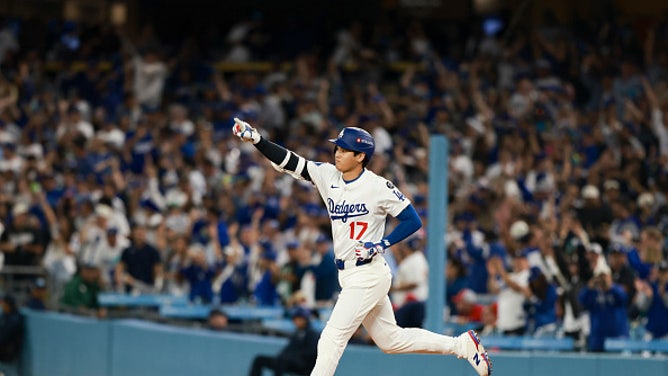There's No Such Thing As Choking In The Major League Baseball Postseason
Projection systems show largest favorite at just 57 percent as Tigers, Mariners, Yankees and Dodgers advance
PublishedOctober 3, 2025 7:28 PM EDT•UpdatedOctober 3, 2025 7:28 PM EDT
The 2025 Major League Baseball playoffs are reaching the division series phase on Saturday, and the four matchups are each equally fascinating.
The Detroit Tigers overcame a record-setting division collapse to get past the Cleveland Guardians. Meanwhile, the Seattle Mariners won their first division title since 2001. Seattle, hosting a playoff series, has realistic hopes of making its first ever World Series. Detroit though, is countering with the potential for two starts from all-world superstar Tarik Skubal.
Thanks to a tiebreaker, the Toronto Blue Jays will host their series against their division rivals, the New York Yankees. A raucous Rogers Centre crowd for the first two games, with Toronto's depth and surprising starting pitching. Matched up against the Yankees offensive firepower and the impressive Cam Schlitter.
On the National League side, there's another matchup of division rivals, with the Milwaukee Brewers set with home field advantage over the Chicago Cubs. Chicago hasn't been to the NLCS since 2017, while the Brewers haven't won a postseason series since 2018. Milwaukee came from nowhere to secure baseball's best record, and have elite starting and situational hitting. While Chicago's offense and bullpen have been some of the game's best units.
Then there's the big one: the Los Angeles Dodgers and the Philadelphia Phillies.

Shohei Ohtani of the Los Angeles Dodgers rounds the bases after hitting a two-run home run in the bottom of the sixth inning during Game One of the National League Wild Card Series between the Cincinnati Reds and the Los Angeles Dodgers at Dodger Stadium on Tuesday, September 30, 2025 in Los Angeles, California. (Photo by Nicole Vasquez/MLB Photos via Getty Images)
Dodgers-Phillies Rife With StorylinesDespite their consistent success over the past half decade, the Dodgers and Phillies haven't met in the postseason since 2009. And immediately, in game one, it's set to be a fascinating battle of elite teams.
Shohei Ohtani, who's already won a World Series in LA, will make his first ever postseason start at Citizens Bank Park on Saturday. The Phillies' lineup will get former Dodger Trea Turner back from an injury. Both have exceptional offenses and dominant starting pitching. Oh, and questionable bullpens.
Mookie Betts, Ohtani, Teoscar Hernandez and Freddie Freeman against Kyle Schwarber, Bryce Harper, Turner and Nick Castellanos. The starting pitching matchups are equally fascinating: Ohtani vs. Christopher Sanchez in game one. Blake Snell vs Ranger Suarez in game two. Yoshinobu Yamamoto vs Jesus Luzardo in game three.
Clayton Kershaw, in what could be his final ever series, is available out of the bullpen. Roki Sasaki suddenly looks like the pitcher the Dodgers thought they were getting before the year.
Meanwhile, Philadelphia shored up its bullpen by adding dominant closer Jhoan Duran from the Twins.
Every Division Series Matchup Is Incredibly CloseSo what does this all lead to? For one, a fascinating set of series between evenly matched teams that are trying to make baseball history, like LA, or rewrite their franchise's histories.
But as one projection system demonstrates, it also highlights just how close the margins are in postseason series. And how, when games are this close, it's impossible for one team to "choke" them away.
The ZiPS projection system, housed at Fangraphs, has simulated the division series round with potential starting pitchers. Here's how they lineup:
The biggest favorite is Seattle. By 57-43. Dodgers-Phillies is a virtual toss-up.
Would you say that getting a coin flip or roulette spin prediction wrong is "choking?" Because that's close to what we're getting with these series.
This is why "choking" narratives are so ludicrous. How can there be a "choker" in a series where there's a ~50 percent chance of winning? The gap between teams is baseball is just too small. The teams are too evenly matched. One play here or there can swing a series. And one play often comes down to randomness or variance or luck. Or some combination of all three, along with skill.
All four "underdogs" could win, and it wouldn't be surprising. All four "favorites" could win, and it wouldn't be surprising. It's chaos. That's what happens when you distill a 162-game season down to a tournament.